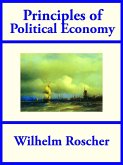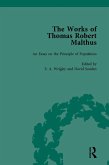In "Letters of David Ricardo to Thomas Robert Malthus, 1810-1823," the esteemed economist David Ricardo engages in a profound epistolary dialogue with his contemporary Thomas Malthus, offering critical insights into the economic theories of their time. The letters encapsulate key discussions on the nature of value, distribution, and the implications of population growth on economic stability. Ricardo's meticulous and analytical prose exemplifies the Enlightenment's intellectual rigor, positioning these letters as crucial documents in the landscape of classical economics, illustrating contrasting views on resource allocation and social welfare that were emerging during this pivotal era. David Ricardo (1772-1823) emerged from a wealthy merchant family, navigating the complexities of the market to develop his theories on comparative advantage and rent. His correspondence with Malthus, a renowned demographer and philosopher, reflects their mutual intellectual respect and diverging economic ideologies, shaped by their personal experiences and societal observations. These letters allow readers to trace the evolution of their thoughts, underscoring how they influenced each other and the wider field of economic theory, particularly in matters of population and production. This collection is an invaluable resource for economists, historians, and anyone interested in the foundational debates that have shaped modern economic thought. By engaging with this correspondence, readers will not only gain insights into the personal dynamics between two of the era's foremost thinkers but also appreciate the profound questions they wrestled with, which remain remarkably relevant in contemporary discourse. Highly recommend for scholars and students alike.
Dieser Download kann aus rechtlichen Gründen nur mit Rechnungsadresse in A, B, BG, CY, CZ, D, DK, EW, FIN, F, GR, H, IRL, I, LT, L, LR, M, NL, PL, P, R, S, SLO, SK ausgeliefert werden.









